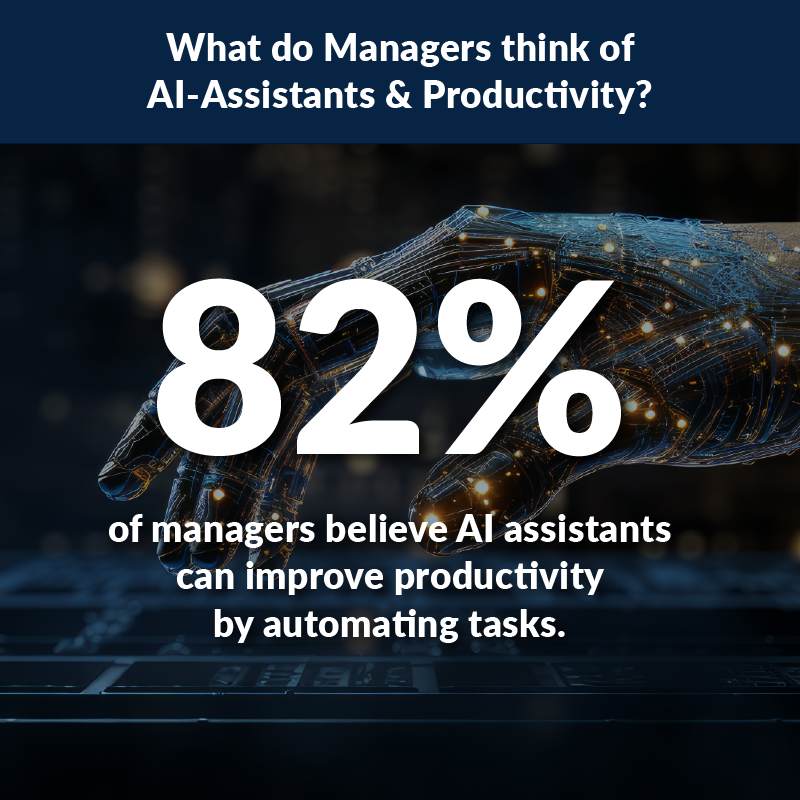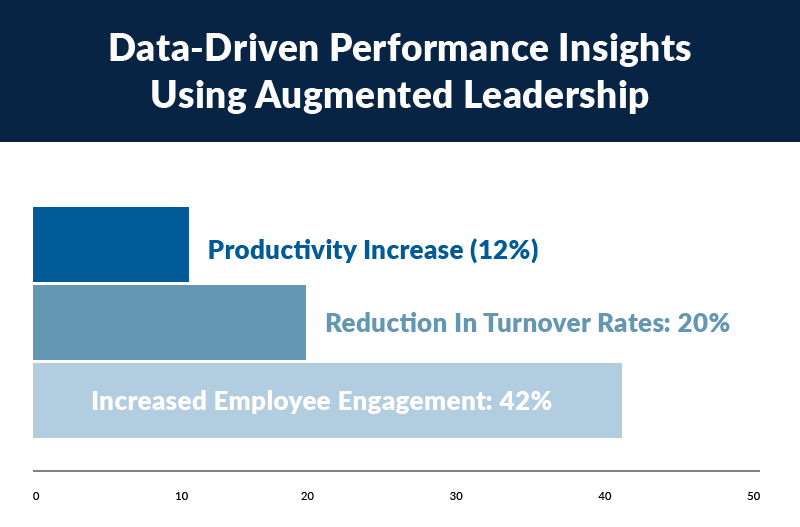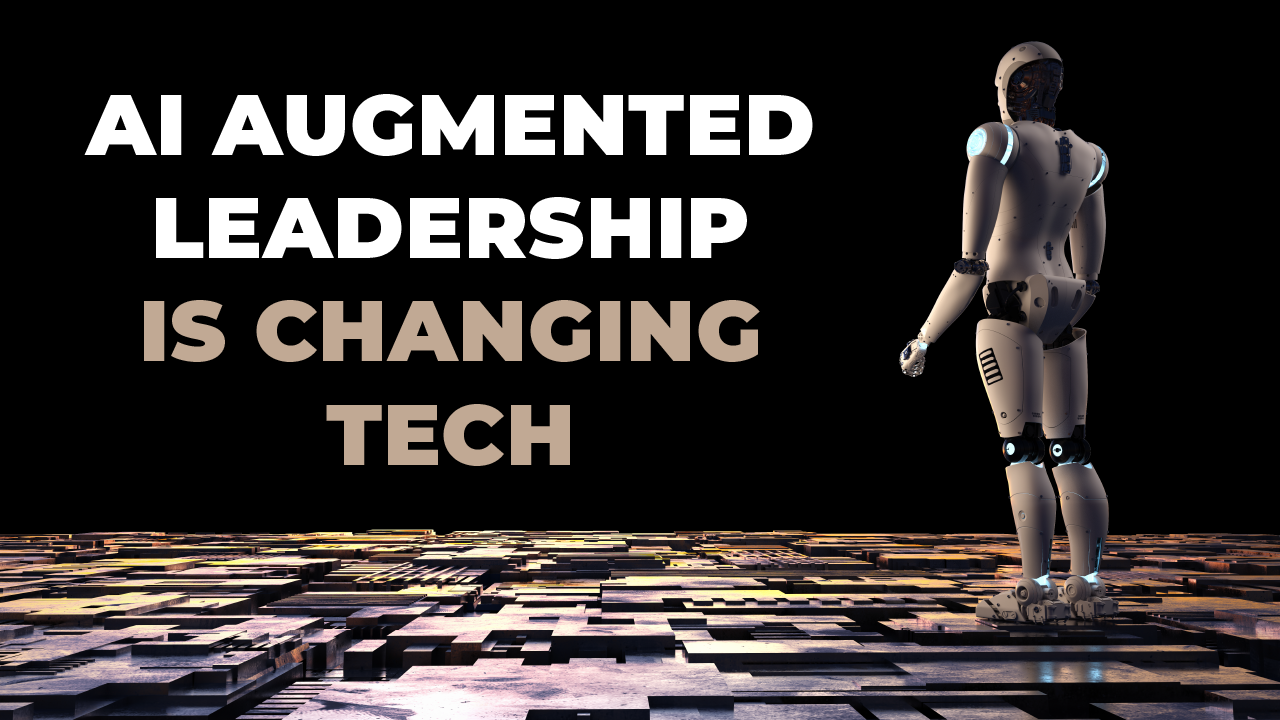According to recent statistics, more than 76% of Americans “agree” or “strongly agree” that artificial intelligence will fundamentally change the way people work and live over the next decade. With this sobering fact in mind, technology leaders face a dual challenge: streamlining operations and fortifying cybersecurity in today’s digital landscape. The integration of AI assistants offers a solution to both, empowering leaders to navigate this new terrain effectively.
In the tech world, leadership development with AI ushers in augmented leadership, a technology that enables leaders to make fast, sophisticated, data-driven decisions that direct workers’ activities in partnership networks, not through chains of command.
As we look ahead to the future workforce in 2024, shaped by ongoing digital advancements, it’s clear that leaders must act now to equip themselves with the right strategies, talent, and technology. Building trust and unity within teams is essential for driving innovation and success.

Let’s explore how AI in management enhances both productivity and cybersecurity resilience:
Streamlined Task Management
In a survey conducted by Accenture, 82% of managers believe AI assistants can improve productivity by automating tasks. By leveraging AI in team management, tech leaders can streamline workflows and free up time for strategic initiatives. This efficiency extends to cybersecurity operations, where automated processes can quickly identify and address potential threats.
Personalized Learning and Development
Research indicates that organizations utilizing AI for employee development experience a 42% increase in employee engagement. By leveraging AI, companies can provide personalized training, identifying individual skill gaps and offering relevant courses tailored to each employee’s needs. This approach not only enhances team skills but also fosters a culture of cybersecurity awareness, mitigating the risk of human error in security incidents and ensuring a more resilient organizational cybersecurity framework.
Data-Driven Performance Insights
Recent studies suggest a 12% productivity increase and 20% reduction in turnover rates with AI-driven analytics. Tech leaders gain valuable insights into employee performance, aiding decision-making in business operations. These insights also provide valuable intelligence for cybersecurity strategy formulation, allowing proactive addressing of vulnerabilities and risk mitigation.
Efficient Communication and Collaboration
(According to Statista) 76% of IT decision-makers see AI tools enhancing collaboration. AI-powered communication tools provide real-time insights, improving team coordination and efficiency. In cybersecurity, these tools facilitate swift responses to emerging threats and enhance overall team coordination in incident response efforts.
Enhanced Cybersecurity through Augmented Leadership

Recent findings from Gartner highlight how augmented cybersecurity leadership will help tech leaders navigate through challenging security processes:
Streamlined Security Programs: Gartner predicts that enterprises integrating GenAI with a platform-based architecture for security behavior and culture programs will witness a 40% reduction in employee-driven cybersecurity incidents by 2026. This integration streamlines security processes, allowing tech leaders to focus on proactive risk management.
Improved Application Security: By 2027, 30% of cybersecurity functions are expected to redesign application security for direct consumption by non-cybersecurity experts and ownership by application owners. This redesign ensures that security measures are more accessible and actionable across the organization, reducing vulnerabilities.
Expanded Responsibilities: As regulatory pressure mounts and attack surfaces expand, Gartner forecasts that by 2027, 45% of CISOs will extend their responsibilities beyond cybersecurity. This expansion ensures comprehensive risk management strategies that align with evolving regulatory requirements and emerging threats.
Resilience and Burnout Prevention: Investing in cybersecurity-specific personal resilience programming can lead to a 50% reduction in burnout cases compared to peers by 2027. This investment ensures that cybersecurity leaders are equipped to navigate the complexities of their roles, mitigating personal legal exposure as organizations increasingly extend Directors and Officers (D&O) insurance to cybersecurity leaders.
By integrating AI into leadership practices, tech teams can achieve not only heightened productivity and employee engagement but also enhanced cybersecurity resilience, positioning themselves for success in an increasingly digital and interconnected world.
Conclusion
These statistics underscore the transformative potential of augmented leadership with AI integration, enabling tech leaders to help build employee empowerment in the workplace and drive organizational success. Through heightened productivity, increased cybersecurity resilience and optimized performance, , augmented leadership is emerging as a game-changer in an increasingly digital and interconnected world.





